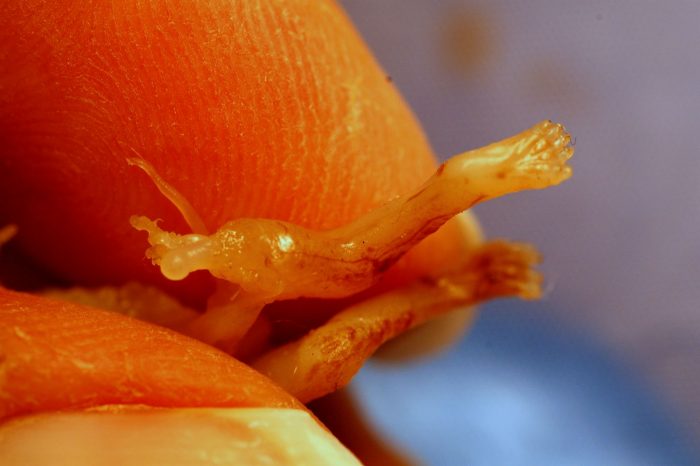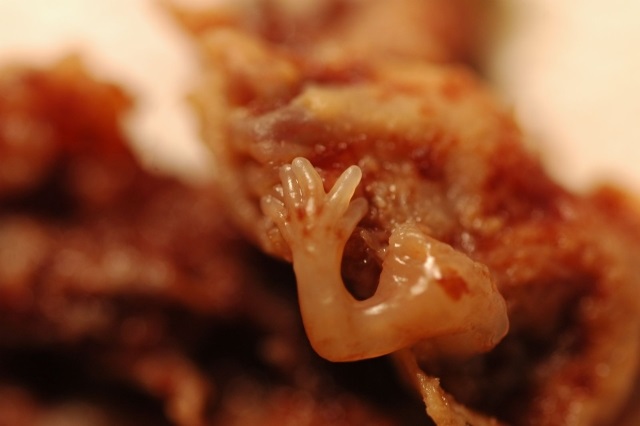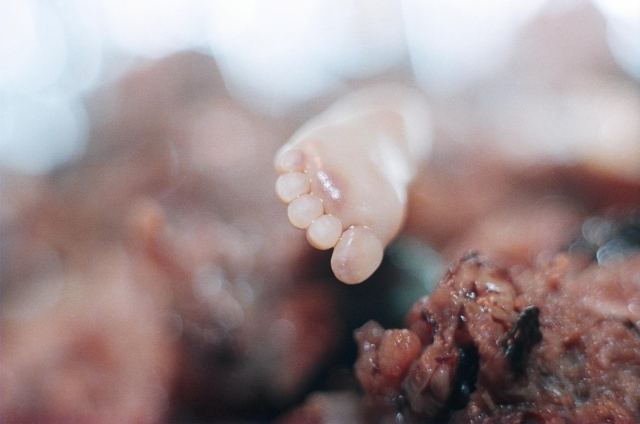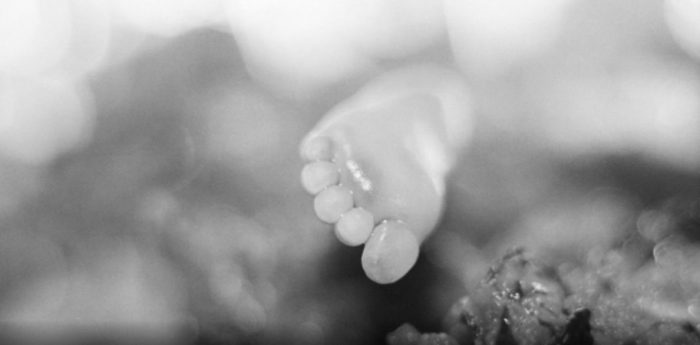Abortion is so inherently and totally destructive that it takes an emotional toll on everyone involved. Even those who participate in the abortion industry are affected.
British psychologist Mary Mullany describes how it’s not just the women coming in for abortions that experience emotional trauma. The abortion workers have psychological problems as well:
My work as a Psychiatric Clinical Specialist involves direct counseling with women wishing to have an abortion and consultation with nursing and medical staff performing the procedures. What has been the most distressing to me is the discouragement that the nursing staff experience, resulting in a very high attrition rate. The staff perform first trimester as well as prostaglandin abortions weekly. Clearly prostaglandins are the most controversial and stressful for all involved.
Recently, I started working with nurses’ groups to help them to articulate their thoughts, feelings, and concerns about the abortion process and hopefully channel concerns appropriately. There are numerous occasions where the nurses’ own ambivalent feelings interfere with patient care and heighten conflict among staff.
Prostaglandin abortions are late-term abortions usually done in the second trimester. In this type of abortion, the drug prostaglandin is administered to the pregnant woman, causing her to go into labor and deliver a baby too young to survive. Sometimes these babies are born alive. Some practitioners may inject digoxin or another feticide into the baby before delivery to minimize the risk of a live birth. Former abortionist Dr. Anthony Levatino explains the process of an induction abortion in the video below:
Prostaglandin abortions are difficult because the woman must endure labor. It falls to the nurses to dispose of the bodies of babies aborted this way. The mother may see her aborted child if she delivers and the nurses don’t take the baby away in time. It can be a very disturbing experience for everyone involved.
Other abortion workers have talked about the emotional difficulty of dealing with late-term abortions. One nurse who assists with these abortions said:
Nobody likes doing abortions. The later abortions can be especially distressing. I was brought up as a Christian, and of course it’s upsetting to me. But in medicine you learn to do what is necessary in the best way, and Mr. Paintin [the abortionist] is wonderful and has explained to us that we are doing the best in difficult circumstances.
This former Christian has pangs of conscience about what she is doing. The abortionist was able to convince her that committing abortions is “the best in difficult circumstances.” Obviously, a woman who comes in with an unplanned pregnancy is in difficult circumstances. But aborting her baby does not improve her life or bring her conflict to a good resolution. Further, abortion is not medicine — it is killing.
Aside from the physical complications an abortion can cause, there can be psychological complications. According to two studies based on medical records, women who have abortions are 6 to 7 times more likely to commit suicide than women who have never aborted. Teenagers are even more vulnerable – the rate of teen suicide after abortion is 10 times greater than normal. These studies covered only the first six months after the abortion, before the anniversary of the abortion and often before the expected due date — two dates that can trigger emotional distress in post-abortive women. So the rate may be even higher.
Abortion does not help women; it harms them. And it certainly doesn’t help babies.
Former abortion worker Annette Lancaster says that mental breakdowns among staff were common in the facility where she worked:
Somebody was having a breakdown every procedure day. Women that were working in the POC [products of conception] room would often cry and have breakdowns while they were cleaning instruments or, you know, picking through fetal body parts.

An aborted fetus’s leg with thigh bone protruding. 8 weeks gestation. Photo courtesy of prolifesociety.com and imagesofabortion.com.
Another former abortion worker still has emotional scars from her time in the abortion industry. Even though this worker has been out of the industry for many years, she still suffers trauma. After witnessing an abortion on television, this worker was overcome with guilt:
The other day I saw on abortion on TV and I had to run to the bathroom. The guilt of having assisted with abortions is so great 10 years later that I sometimes think I need therapy. The trouble is I don’t know any therapist I could talk to about this.
It may be hard to find a therapist who understands the psychological needs of former abortion workers. Fortunately, today, there is a place where former workers can go for emotional support and healing. And Then There Were None, founded by former abortion worker Abby Johnson, provides healing retreats and emotional support to former abortion workers.
Researchers have also commented on how abortion causes emotional distress in people who assist or commit them. One author who interviewed abortionists and abortion workers for a book she was writing made the observation that:
Abortion work is not easy. Late-term abortions are horrific. Nurses doing abortions after the first trimester of pregnancy either seem rather distressed by what is going on, or appear rather as cynical and hard. When they are distressed it may be that their caring role and training is still fundamentally at odds with the termination of pregnancy.
An article in the Journal of Medical Ethics describes how abortions negatively affect abortionists, especially when they are done by dismemberment:
It is clear that physically dismembering and removing the fetus is emotionally distressing for the doctor. A doctor, therefore, has to overcome an element of revulsion in order to do a late term surgical termination of pregnancy…. Dismemberment of a baby so violates a general human instinct that it is morally worse than destruction of the fetus by other means.

The hand and arm of aborted baby—7 weeks. (Photo courtesty of prolifesociety.com and imagesofabortion.com.)
Some abortionists have also mentioned how emotionally difficult committing abortions can be. One Planned Parenthood abortionist said:
This can burn you out very, very quickly…not so much by the physical labor as the emotional part of what’s going on. When you do an ultrasound, particularly if you have children, and you see a fetus there, kicking, moving, living, doing things that your own child does, bringing its thumb to its mouth, and things like that- it’s difficult. Then, after the procedure, sometimes we have to actually look at the specimen, and you see arms and legs and things like that torn off…It does take an emotional toll.
I do not know what happened to this abortionist after the interview. I hope that his conscience led him out of the industry that dehumanizes women and kills children. As human beings, they are affected by this work. Their emotional suffering does not make their involvement with abortion acceptable, but it does reveal that these are hurting people.
The daughter of one abortionist said, “It’s sort of sad, that society has forced him into this. He seems like a sadder person now than when his practice was delivering a lot of babies.” Of course, no one is forcing abortionists to commit abortions. But it is profitable, as one abortionist explained.
Other doctors may be motivated more by a misguided sense of altruism than by money. They may really believe that they are helping women. They may have seen or known about women who were injured or killed by illegal abortions (although the number of women killed in the past by illegal abortion is much lower than pro-abortion groups claim). Other abortionists may truly believe that they are improving women’s lives. These motives do not justify what they do, but they can help explain what motivates them so that pro-lifers know how to reach them.
There is another possibility as to why abortion workers get involved in the industry and stay even though they suffer emotional trauma. In an episode of the show Catholic Answers, host Patrick Coffin interviewed former abortion worker Catherine Adair. At one point in the interview, Coffin said:
I’ve been blessed to speak with a growing number of former Planned Parenthood volunteers and workers, Catherine, and one thing they seem to have in common is they had abortions themselves and became advocates as a way to almost process the grief, thinking they can transfer the sense that they had done wrong by helping someone else… Do you think some of, if not most, of abortion advocacy is rooted in a personal experience with abortion that is just not faced?
Adair answered, “Absolutely. I think there’s a tremendous amount of pain behind those clinic doors, both for the women going in there and for the women working there.”
Some workers struggle emotionally with the burden of helping with abortions. Some have nightmares. Former worker Jewels Green described seeing the bodies of aborted babies in the first trimester:
After an abortion, the instrument tray was passed through the window in the wall into the autoclave room. The other thing that passed through was the Jar. It held the precious contents that just moments before had comfortably resided inside the mother’s womb.
It looked like an oversized glass pickle jar. It was emptied next to me on the counter top: teeny tiny hands and feet and arms and legs and a rib cage and a spine and a hollow, flattened, misshapen, torn head..… I saw it all.… Up to 30 times a day, four days a week.
She then described the nightmares she started having:
I started having nightmares, haunted by tiny, limbless phantom babies. I was floating down a narrow stream with miniature body parts strewn on either shore – and then I’d begin to sink. I’d flail and gasp and go under.

Foot of aborted baby at 21 weeks.
In her testimony, Jewels Green explained that her reason for getting involved in the abortion industry was her guilt over her own abortion. Surrounding herself with people who supported abortion eased her conscience. Every time another woman chose abortion, Green felt that her own choice was validated.
Abortion worker Sally Tisdale also described having nightmares. While she was still employed at the abortion facility, Tisdale said:
I have fetus dreams, we all do here: dreams of abortions one after the other; of buckets of blood splashed on the walls; trees full of crawling fetuses. I dreamed that two men grabbed me and began to drag me away, ‘Let’s do an abortion,’ they said with a sickening leer, and I began to scream, plunged into a vision of sucking, scraping pain, of being spread and torn by impartial instruments that do only what they are bidden …
When reaching out to abortion workers, it is good to keep in mind that many of them are hurting from their own abortions and from their work at these facilities. It’s true that some people manage to harden their hearts to the point where they are indifferent to all kinds of human suffering. There are likely some abortion workers who feel absolutely nothing as they look through the remains of aborted babies. But being involved in the abortion industry takes a toll on people who still have a conscience. In trying to bring abortion workers out of the industry, we are doing something good for them as well as for preborn babies.







